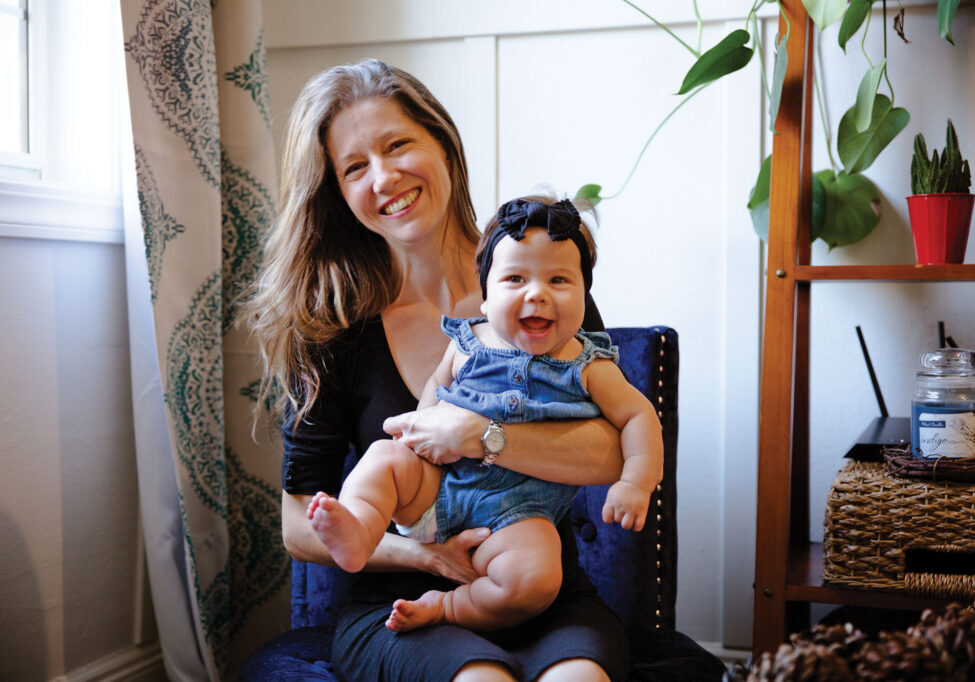When Kristine Strange talks about fitness with her two school-age sons, she’s careful to focus on effort, rather than physical appearance. “We talk about how strong our bodies are and how much work they can do, rather than what they look like,” she says.
Eating disorders are on the rise with boys
Boys develop unhealthy relationships with food and body image nearly as often as girls, but their struggles are often unrecognized by parents and caregivers. Because traditional medical assessments for eating disorders are often gender biased, the conditions may be underdiagnosed in males, according to Stanford University researchers.
Around a quarter to a third of those struggling with an eating disorder are male, says clinical psychologist Michelle P. Maidenberg, Ph.D., a family therapist in New York City. Boys tend to experience different types of eating disorders than girls, making them harder to detect by parents and healthcare providers, she notes. “On average, boys develop eating disorders at a slightly younger age than girls do. They usually have binge eating disorder or not otherwise specified eating disorders, rather than anorexia or bulimia.”
Who’s most at risk?
The boys who seem to be most vulnerable to struggles with body image, eating disorders, and disordered eating are those with a keen desire to be fit, lean, and thin, says Maidenberg. Boys involved in sports or activities where body weight is emphasized, like track, rowing, gymnastics, or wrestling, are vulnerable.
“Socio-cultural and socio-economic factors also put boys at risk, particularly for boys who come from families with high levels of stress, poor patterns of communication, unrealistically high expectations and under-developed problem-solving skills,” she says.
Boys with a close family member or parent with an eating disorder are more likely to develop one themselves. Research shows that having a gender identity different from the one assigned at birth increases vulnerability for eating disorders. “In our gender clinic we see youth restricting food intake to delay puberty,” Evans says.
Words and signs hold clues that a boy is struggling
Everyday conversations may hold clues that a boy is struggling with body image and food. When words like “cut,” “shredded,” and “ripped”—terms for an extremely defined, muscular physique—start showing up more frequently, listen closely.
Signs that a boy is struggling with food or developing an eating disorder include sudden weight loss, obsessively reading about nutrition, a fixation with “clean” eating, excessive exercise, using supplements aimed at increasing muscle mass or cutting fat, and avoiding social gatherings and family meals, says Maidenberg.
Parents of younger boys may notice them moving food around on their plate, cutting food into tiny bites, and bringing home a nearly full lunchbox after school.
Left unchecked, these behaviors can lead to physical signs of malnourishment, including low heart rate, low blood sugar, constipation, dizziness, and feeling cold. Eating disorders are linked to depression and anxiety; researchers estimate that nearly half of teens with an eating disorder are also depressed.

Talking openly and factually about bodies
Parents can support a healthy body image by talking openly and factually about the physical form. Don’t shy away from questions about the body or how it works, says Maidenberg, whose book Free Your Child From Overeating helps parents encourage a healthy relationship with food.
Instead, use your son’s questions about his body as opportunities to talk about self-care, she says. “Part of loving himself means taking care of his body and keeping it strong and healthy by eating healthfully.”
Talking openly about bodies means being real about the physical changes that accompany puberty. “Before and after puberty, our bodies change dramatically, and weight gain can be a normal part of the process,” says Maidenberg.
Health and fitness are not the same thing
In conversations with boys, be careful about confusing health and fitness, a common but potentially damaging mistake. Tell boys that it’s possible to be fit without being healthy—there are plenty of examples of exceptionally fit professional or elite athletes who experience serious health problems, from frequent bone fractures to heart disease to depression.
“Our health is important because it helps our bodies grow, function properly, and become strong,” says Maidenberg. Healthful behaviors like eating a balanced diet and resting enough give the body energy; behaviors like overtraining and food restriction that seem to boost fitness temporarily actually detract from health.
When talking about food choices — including yours — focus on balance instead of restriction. Instead of talking about losing weight or cutting foods out of your own diet, talk about what the food you’re taking in is doing for you.
Communicate unconditional love
Communicate unconditional love and that physical attributes don’t determine his worth as a person, says Maidenberg. “Our body size and shape are in part due to heredity, much the same as eye color and height. His worth to you is not determined by his shape or size or what he looks like. How much he weighs is not a measure of who he is as a person.
Posted in: Health & Nutrition
Comment Policy: All viewpoints are welcome, but comments should remain relevant. Personal attacks, profanity, and aggressive behavior are not allowed. No spam, advertising, or promoting of products/services. Please, only use your real name and limit the amount of links submitted in your comment.
You Might Also Like...

Reading Food Labels: Helping Your Teens Make Healthy Food Choices
Our teens today face an uphill battle when learning to navigate the food choices available to them. Grocery and convenience stores, snack bars and vending machines are packed with unhealthy, […]

A Year Of Healthy Living: Monthly Steps Recommended by the Environmental Working Group to Avoid Toxic Chemicals, Protect Your Health and Save Money
Many parents and families want to live a cleaner, chemical-free life. However, making sweeping changes to incorporate healthier products in your family’s life can seem daunting. But making incremental changes […]

Growing Garden Memories and Good Food At Red Gate Ranch
Two special events in Red Bluff happen each April: The Red Bluff Round-Up and temperatures favorable for summer garden planting. It took much trial and error in our family’s garden […]

North State Midwife Naomi Bjorgan – Delivering Exceptional Service For Local Mothers-to-Be
“From the moment we met Naomi, she was very welcoming,” says Lauren Duckett. Lauren’s second child was born at the Redding Midwifery Birth Center in May 2022 under Naomi Bjorgan’s […]



